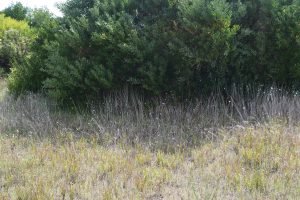Chidi Moore Mmadike

Since completing my work experience (placement or practicum) with the Aboriginal Affairs and Reconciliation (SA), I have had time to reflect on the learnings I have gained. My understanding of Aboriginal heritage has vastly improved and every member of the Aboriginal Affairs and Reconciliation heritage team contributed to my knowledge in this regard, for which I am extremely grateful.
My final trip with the team was to the south east of South Australia. It was a three day trip, from Monday 20th to Thursday 23rd of October, 2014. We stayed in Kingston SE (south east), and from there we visited other places and sites, as far as Bordertown.
Though every aspect of my placement has been a formative learning experience for me, this particular trip was unique in many ways. For example, I had already learned (from secondary sources) whilst studying at the university about how, in some places, Indigenous peoples were removed from their land and placed in reserves by the missionaries. This trip, however, has enabled me to learn more about this aspect of history within a primary context, as we visited one of the affected places. It has also increased my interest in local history and Aboriginal anthropology (and of course archaeology).
My practicum experiences have also caused me to consider the role of gender issues in the protection of Aboriginal heritage. Indeed, many of the primary Aboriginal custodians/spokespersons I have encountered on my journey have been Aboriginal women. This observation led me to explore the issue relating to the position of women in traditional society and the impacts of colonialism. In this regard I note that Poiner (1984:208-209) argued that Europeans did not understand the position of women in traditional Aboriginal society and such misunderstandings influenced the often negative ways in which gender roles were reported in colonial writings.
The greatest outcomes of the field trips I was able to participate in during my placement with the Aboriginal Affairs and Reconciliation team (SA) has been my increased my knowledge of Aboriginal cultures. Further my experiences have stimulated my interest to learn more about the impacts of colonialism on Aboriginal societies.
References:
Bronwyn, F. 2010 Re-empowering ourselves: Australian Aboriginal Women. Chicago Journals 35(3):549-550.
Poiner, G. 1984 We Are Bosses Ourselves: The Status and Role of Aboriginal Women Today. Aboriginal History 8(1):208-209.

